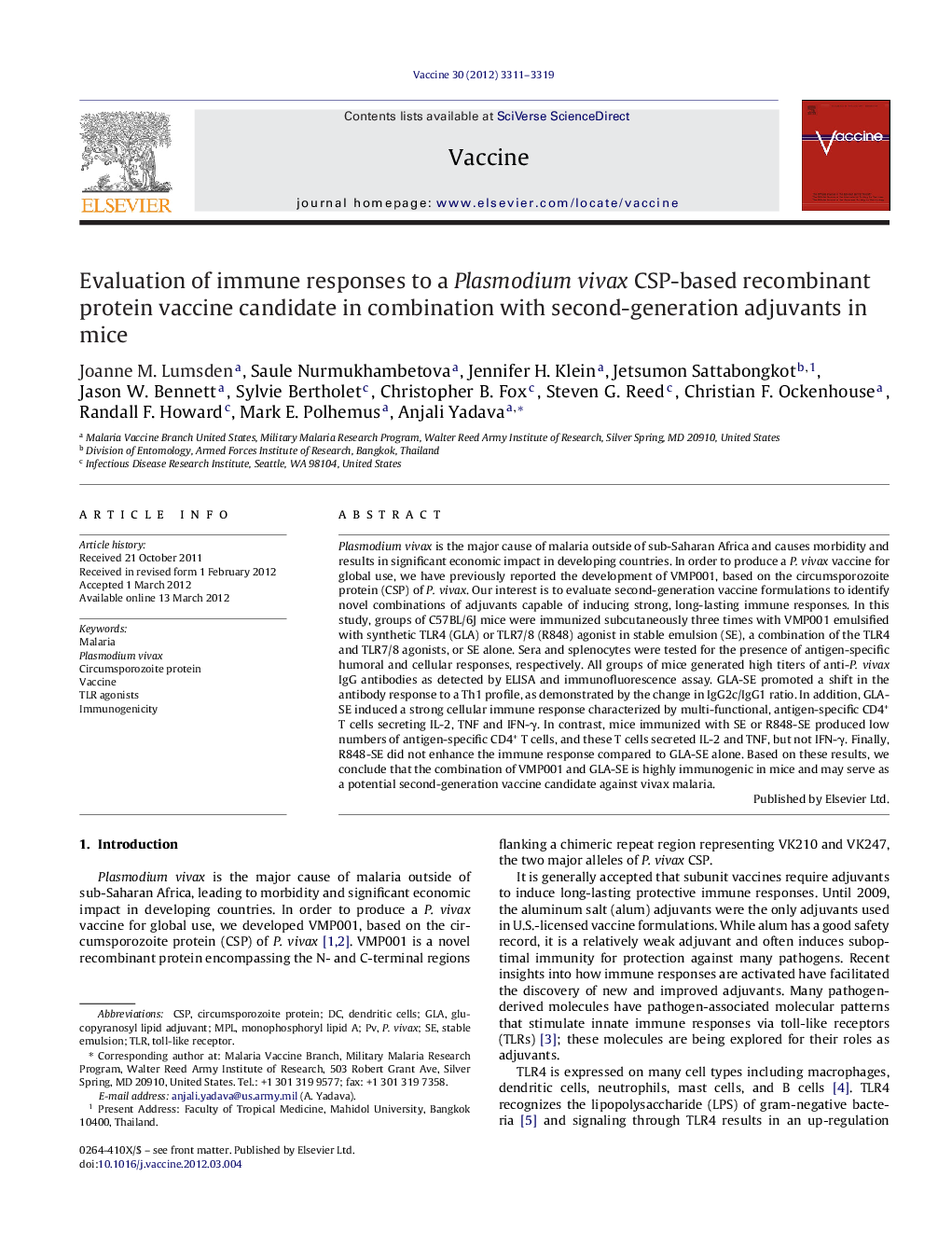| Article ID | Journal | Published Year | Pages | File Type |
|---|---|---|---|---|
| 2403020 | Vaccine | 2012 | 9 Pages |
Plasmodium vivax is the major cause of malaria outside of sub-Saharan Africa and causes morbidity and results in significant economic impact in developing countries. In order to produce a P. vivax vaccine for global use, we have previously reported the development of VMP001, based on the circumsporozoite protein (CSP) of P. vivax. Our interest is to evaluate second-generation vaccine formulations to identify novel combinations of adjuvants capable of inducing strong, long-lasting immune responses. In this study, groups of C57BL/6J mice were immunized subcutaneously three times with VMP001 emulsified with synthetic TLR4 (GLA) or TLR7/8 (R848) agonist in stable emulsion (SE), a combination of the TLR4 and TLR7/8 agonists, or SE alone. Sera and splenocytes were tested for the presence of antigen-specific humoral and cellular responses, respectively. All groups of mice generated high titers of anti-P. vivax IgG antibodies as detected by ELISA and immunofluorescence assay. GLA-SE promoted a shift in the antibody response to a Th1 profile, as demonstrated by the change in IgG2c/IgG1 ratio. In addition, GLA-SE induced a strong cellular immune response characterized by multi-functional, antigen-specific CD4+ T cells secreting IL-2, TNF and IFN-γ. In contrast, mice immunized with SE or R848-SE produced low numbers of antigen-specific CD4+ T cells, and these T cells secreted IL-2 and TNF, but not IFN-γ. Finally, R848-SE did not enhance the immune response compared to GLA-SE alone. Based on these results, we conclude that the combination of VMP001 and GLA-SE is highly immunogenic in mice and may serve as a potential second-generation vaccine candidate against vivax malaria.
► This study evaluates immune responses to VMP001, a vaccine based on Plasmodium vivax CSP. ► Stable emulsion with either TLR4, TLR7/8, or in combination were used as adjuvants. ► Presence of a TLR4 agonist drives a Th1 response, with higher IgG2b/c and IFN-g. ► TLR7/8 agonist does not enhance IgG2b/c and does not induce IFN-g. ► TLR4 agonist induces higher poly-functionality, inducing IL2, IFN-g and TNF.
